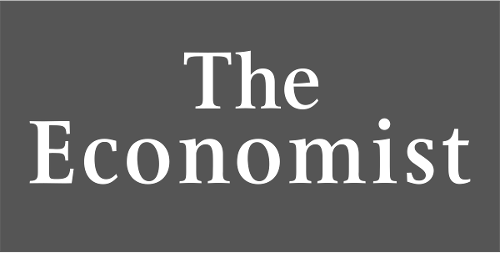Foundation of an Establishment in Liechtenstein
Legal Structure
An Establishment in Liechtenstein is a private law creation. Its independent legal form is to be distinguished from the public law establishments of other jurisdictions. Instead, an Establishment in Liechtenstein is a legally autonomous and organised business which may be arranged similar to a foundation as well as a corporation. The assets of an Establishment are wholly liable for the liabilities of an Establishment.
An Establishment in Liechtenstein can pursue commercial or non-commercial goals and can be used for purposes such as trading of goods, acquisition of investments, financing and asset management. However, it is not permitted to carry on banking activities or asset management for third parties.
In Liechtenstein practice, the Establishments regularly take the form of a typical Establishment (single-person company), an Establishment organised under foundation law or an Establishment without founder’s rights, whose board of directors exercises the rights of the founder, and an Establishment organised under stock corporation law, in which the Establishment’s capital is divided into shares as in the case of a Public Limited Company (PLC., Corp.).
Please contact us for a non-binding enquiry by phone or e-mail or use the contact form at the bottom of this page.
Foundation
An Establishment in Liechtenstein is formed through the filing of the notarised formation deed and the articles of association to the competent Liechtenstein authority by a natural or legal entity. An Establishment in Liechtenstein officially comes into existence upon its registration in the Commercial Register. This is a public register.
Minimum Capital
For the formation of an Establishment in Liechtenstein, a minimum of 30,000 Swiss Francs or Euros or US Dollars must be contributed to its capital. This minimum contribution may be in the form of a cash or non-cash contribution. The said capital may be divided into shares which may or may not have the character of a security. Where the capital is to be divided into shares, the minimum sum to be contributed is 50,000 Swiss Francs or Euros or US Dollars.
Organisation
Owner of the Founding Rights
The owner of the founding rights is the supreme authority of an Establishment in Liechtenstein.
Board of Directors
The responsibilities of the board of directors include the management and representation of an Establishment in Liechtenstein.
Appointment of an Auditor
An Establishment in Liechtenstein must appoint an auditor if it is carrying on commercial activities or if the Establishment‘s articles of association provide that the purpose of the establishment is so.
Representative
An Establishment in Liechtenstein is represented by he who is so entered in the Commercial Register. The address of the person registered as an Establishment‘s representative will be an Establishment‘s official address.
Beneficiaries
The beneficiaries of an Establishment in Liechtenstein may be natural or legal entitiesto whom the proceeds from the Establishment‘s assets and/or to whom the assets go. The Establishment‘s founder designates the beneficiaries. The beneficiaries must be specifically named in the Establishment‘s articles of association or the by-laws. Where it is not clear who the beneficiaries are, the owner of the founding rights will be deemed to be the beneficiary. Where the beneficiaries are specified in the Establishment‘s by-laws, their names are not registered in the Commercial Register and the beneficiaries accordingly remain anonymous. In contrast, anonymity for the beneficiaries does not exist if the beneficiaries are specified in the Establishment‘s articles of association. Furthermore, the Establishment‘s founder may require that a restriction or condition be attached to the beneficial interest. The said beneficial interest may be revoked at any time by the Establishment‘s founder.
The Founder‘s Rights
The founder’s rights encompass all of the powers due to the founder of an Establishment in Liechtenstein. The said rights may be assigned, bequeathed or otherwise transferred at any time. However, the founder‘s rights are not permitted to be given in pledge or otherwise encumbered.
Liquidation
The earliest point at which an Establishment in Liechtenstein can be liquidated is after the expiry of a period of six months following the issuing of the third notice to the creditors.
Tax Structure of an Establishment in Liechtenstein
If an Establishment in Liechtenstein is carrying on commercial activities, a formation fee amounting to 1% of its capital, as specified in its articles of association, must be paid if the general exemption limit of one million Swiss Francs is exceeded. Where the said capital exceeds 5 million Swiss Francs, the formation fee may be reduced to 0.5% upon application. Similarly, where the said capital exceeds 10 million Swiss Francs, the formation fee may be reduced to 0.3% upon application.
In addition, an Establishment is Liechtenstein is required to pay corporate income tax annually. In accordance with Liechtenstein‘s Tax Law of 1st January 2011, an annual flat income tax rate of 12.5% on an Establishment‘s taxable income must be paid. Due to the interest deduction on equity capital, a deduction of 4% is to be deducted when calculating an Establishment‘s tax liability. the minimum income tax is currently 1,200 Swiss Francs. Furthermore, following the introduction of the Personal Asset Structure (PAS), Establishments in Liechtenstein which are not carrying on commercial activities and which satisfy the appropriate requirements are required only to pay the minimum income tax of 1,200 Swiss Francs.
Following Liechtenstein’s tax reform, the capital and coupon taxes have been abolished. Furthermore, tax is not payable on dividends or capital gains made through liquidation- or sale proceeds.






